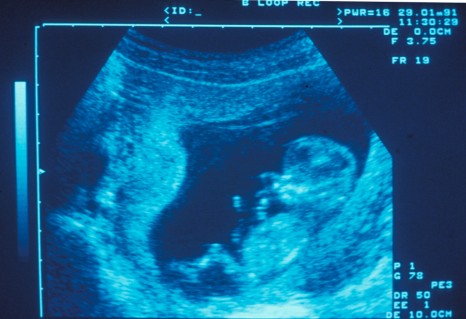Press Contact
Service de presse de l’AP-HP : Marine Leroy - 01 40 27 37 22 - rf.phpa@esserp.ecivres

© Inserm/Sarramon, Marie-Françoise
Successful In Utero Hematopoietic Stem Cell Transplantation in a Fetus with Severe Combined Immunodeficiency
Teams from the Biological Therapy Department and Pediatric Immunohematology Unit at Necker-Enfants Malades Hospital AP-HP, the Fetal Medicine Department at Trousseau Hospital AP-HP, Inserm, the Imagine Institute, Université Paris Descartes and Sorbonne Université have achieved the in utero transplantation of hematopoietic stem cells in a fetus with X-linked severe combined immunodeficiency.
The transplantation was performed in July 2015 in response to a risk of maternofetal transmission of a parasite, Toxoplasma gondii, whose consequences on fetal brain development can be serious and more particularly so here in a fetus with no T-cells.
The graft taken from the patient’s sister, whose immune system was compatible, comprised a mixture of hematopoietic stem cells (able to restore normal immune system development over the long-term) and mature T-cells (able to rapidly defend the fetus from infection with the parasite).
The transplantation and remainder of the pregnancy were uneventful, with the baby born at full term in the Maternity Unit at Trousseau with a functional immune system. The child is now over three years old and in good health, having needed no hospitalizations or therapeutic interventions since birth.
The indication for in utero transplantation continues to remain very restricted due to its potential risks and the possibility of performing the transplantation very soon after birth.
Nevertheless, the success of this transplantation opens up new therapeutic prospects for fetuses with severe immunodeficiency, where a compatible donor exists and where there is a manifest infectious risk during pregnancy.
Service de presse de l’AP-HP : Marine Leroy - 01 40 27 37 22 - rf.phpa@esserp.ecivres
Successful in utero stem cell transplantation in X-linked severe combined immunodeficiency
Alessandra Magnani, Jean-Marie Jouannic, Jérémie Rosain, Aurélie Gabrion, Fabien Touzot, Cécile Roudaut, Sven Kracker, Nizar Mahlaoui, Antoine Toubert, Emmanuel Clave, Elisabeth A. Macintyre, Isabelle Radford-Weiss, Marion Alcantara, Elisa Magrin, Brigitte Ternaux, Jennifer Nisoy, Laure Caccavelli, Anne-Marie Darras, Capucine Picard, Stéphane Blanche and Marina Cavazzana
Blood Advances 2019 3:237-241; doi: https://doi.org/10.1182/bloodadvances.2018023176